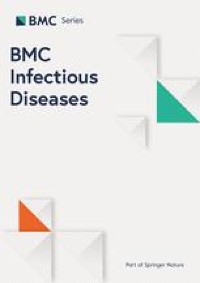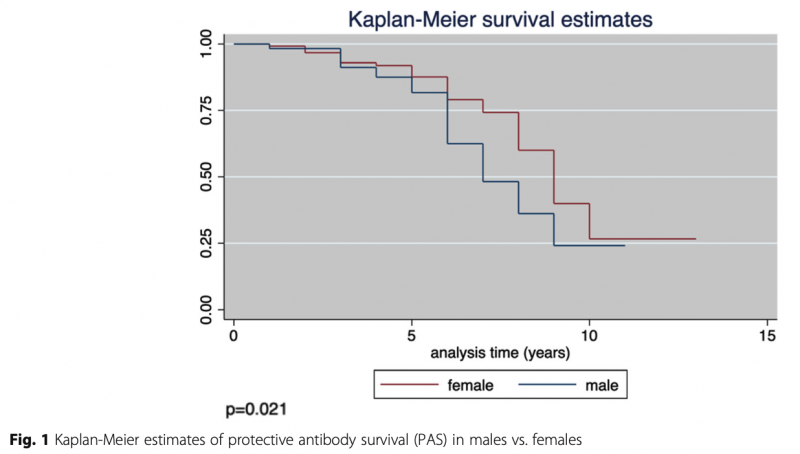impf-info.de
Windpocken-Impfung: rasche Abnahme der schützenden Antikörper-Spiegel
Eine italienische Studie an Studenten und Mitarbeitern im Gesundheitswesen konnte nachweisen, dass die als schützend angesehenen Antikörperspiegel nach zweimaliger Windpocken-Impfung wesentlich schneller abnehmen als z.B. die nach Masern- oder Röteln-Impfung: die Autoren errechnen (auf der Grundlage relativ kleiner tatsächlicher Teilnehmer-Zahlen), dass schon 9 Jahre nach der Impfung 50% der zweimal Geimpften keinen Schutz mehr aufwiesen.
Einschränkend ist bei dieser Studie (außer der kleinen TN-Zahl) die unzulässige Annahme, dass fehlende AK automatisch einen fehlenden Schutz bedeuteten - hier wird die Rolle der zellulären Immunität gänzlich ausgeblendet. Das gilt auch für die Behauptung, mit einer dritten Impfung sei bei allen Untersuchten der AK-Spiegel kurzfristig wieder angestiegen - von anderen Lebendimpfungen wie der Mumps-Impfung wissen wir, dass solche Wiederanstiege nach dritter Impfung dort nicht nachhaltig sind.
Dennoch liefert diese Studie ein Signal, das auf eine fehlende Nachhaltigkeit der Windpocken-Impfung hinweisen könnte und klinische Studien dringend erforderlich macht - gerade auch angesichts der Problematik eines Herpes zosters (Gürtelrose) bei nachlassender (Impf-)Immunität.

Long -term persistence of antibodies against varicella in fully immunized healthcare workers: an Italian retrospective cohort study | BMC Infectious Diseases | Full Text
By accepting you will be accessing a service provided by a third-party external to https://impf-info.de/

